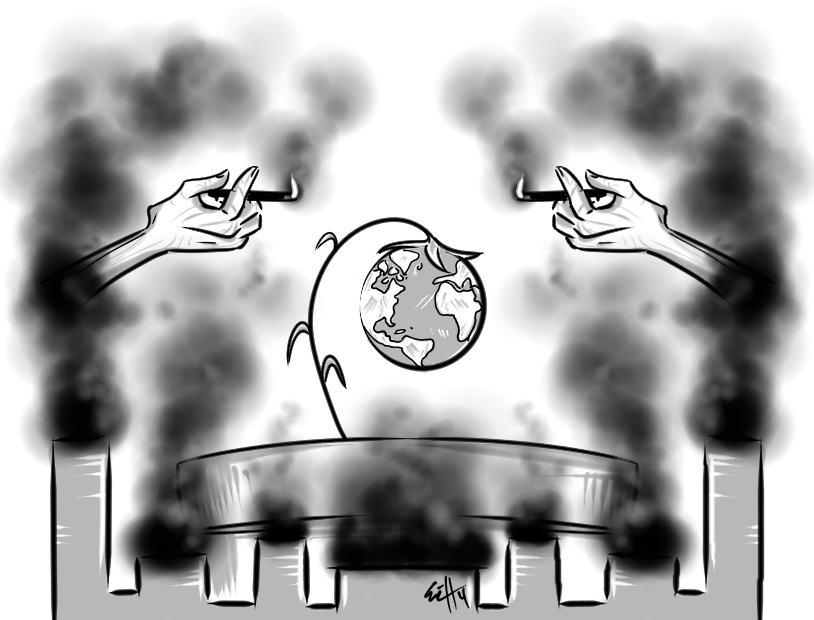It’s no secret that the safety of our environment is a hot-button topic these days. We, for the most part, care about whether our planet bursts into flames or drowns in the flooding oceans. But should that be all we’re worried about?
Air pollution that is contributing to our warming climate is predominantly the result of our transportation, power generation, and residual heating and cooling habits. These sources contribute to the ozone depletion and constantly make the news.
For example, at the Asia-Pacific Economic Cooperation, the two largest emitters of greenhouse gases, the United States and China, agreed to significantly cut their carbon emissions. According to the deal, the United States must decrease its carbon emission by 26 to 28 percent from its 2005 levels by 2025. China must increase its use of non-fossil fuels by 20 percent by 2030. Both countries want to lead the efforts against climate change and to be role models for other counties around the world.
At this meeting of world leaders, the health of our planet was of significant importance, but had little to do with personal health of the people on the planet.
The most common cause of death in the United States is heart disease followed closely by cancer, as reported by the Center for Disease Control and Prevention. Cigarettes and other media for tobacco smoke cause carcinogenic compounds to taint the environment around us and, through the simple process of breathing, to taint our insides.
In 2004, Italy’s National Cancer Institute conducted an experiment to compare a car’s exhaust to the smoke from a cigarette. They lit three cigarettes in a closed garage and measured the harmful, particulate matter that was released and did the same for a diesel engine. After 30 minutes they found that three cigarettes released 10 times more particulate matter than the engine.
Cigarettes are deadly to those who smoke them and to those who don’t. It’s proven that cigarette smoke is not a leading cause of air pollution, but no one has said anything about its relation to our personal health. Smoking tobacco is a deadly habit, and it seems all of these deadly externalities cannot be factored into the price of a pack.
The U.S. has luckily kicked its former nationwide cigarette addiction, but we are mostly alone. I’m proud of our progress, as we’ve made it to 1,028 cigarettes per adult per year. Meanwhile, European countries dominate the top of the list with up to 2,924 cigarettes per adult each year. Our statistic is proudly less than half of the number one stat, but that doesn’t mean we should ignore everybody else’s problem/addiction.
The Cooperation featured plenty of discussion about air pollution and what is being done to decrease it. We agreed to lower ours, but perhaps in exchange for our sacrifices, other countries need to make sacrifices of their own insofar as reducing tobacco smoking.
Smoking tobacco is a terrible habit with no long-term benefits, and it needs be addressed. We can no longer think about only ourselves, but instead must consider the collective planet. Ditching the deadly habits would make for a great start.











